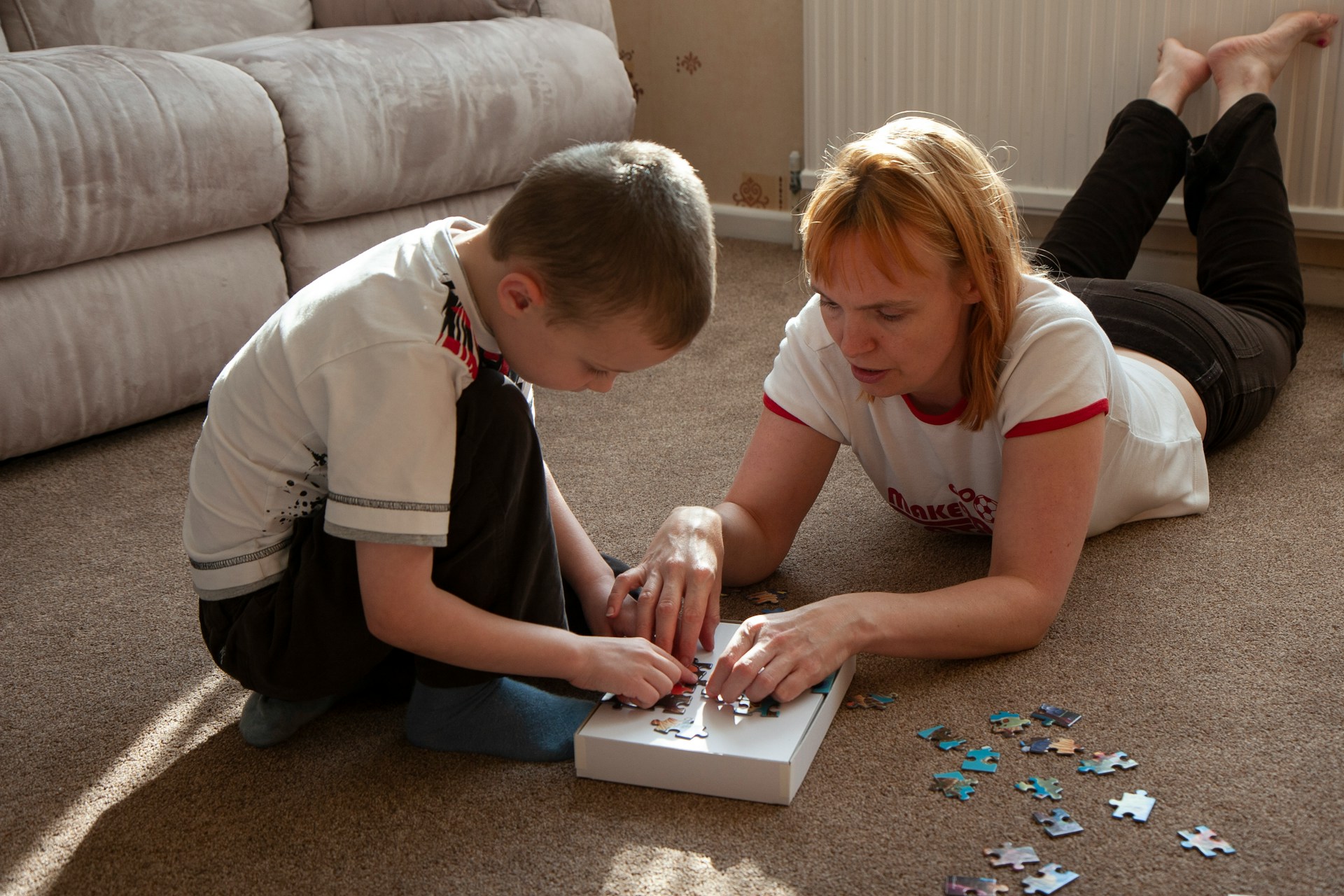
Arkansas Autism Resources
Empowering Families and Supporting Individuals with Autism in Arkansas
Understanding Autism Spectrum Disorder and Local Resources
Autism Spectrum Disorder (ASD) is a complex developmental condition that affects communication, social interaction, and behavior. For families and individuals in Arkansas, a wealth of resources, organizations, and programs are available to provide support, education, diagnosis, and intervention services. This comprehensive guide explores the nature of autism, the support landscape in Arkansas, and the pathways to diagnosis, therapy, and community involvement.
Understanding Autism Spectrum Disorder: Symptoms, Causes, and Diagnosis

What is autism spectrum disorder, and what are the common symptoms, causes, and diagnostic criteria?
Autism spectrum disorder (ASD) is a developmental condition that affects how a person communicates, interacts socially, and behaves. It is called a "spectrum" because it includes a wide range of abilities and challenges, from highly functioning individuals to those with more significant needs.
Common signs of ASD usually become noticeable by age 2 or 3. These include difficulties in social interactions, such as trouble understanding social cues or engaging in typical play. Many children with ASD also exhibit repetitive movements, have very focused interests, and may be sensitive to sensory inputs like lights or sounds.
The precise causes of ASD are still unknown, but research suggests that it results from a mix of genetic and environmental factors. There is no single cause; instead, multiple genes and environmental influences contribute to the condition.
Diagnosing ASD involves behavioral assessments rather than medical tests. Healthcare providers use criteria outlined in the Diagnostic and Statistical Manual of Mental Disorders, Fifth Edition (DSM-5). The process often includes observing behaviors, developmental history, and screening tools to ensure an accurate diagnosis.
Early diagnosis is crucial as it allows families to access support and intervention services promptly. These services, including speech, occupational, and behavioral therapies, can significantly improve developmental outcomes and help individuals build essential skills for daily life.
For families in Arkansas, the Autism Resource and Outreach Center and local clinics provide diagnosis services, supported by professionals such as developmental pediatricians and psychologists, ensuring informed and timely evaluations.
Available Resources and Support Services in Arkansas

What resources, support services, and programs are available for individuals with autism?
Arkansas offers a variety of support services and programs aimed at helping individuals with autism and their families. These services range from early diagnosis to ongoing community support.
The Arkansas Autism Resource and Outreach Center is a primary provider of training, technical assistance, and support for parents, helping them understand their child's diagnosis and navigate the service system. It offers workshops, seminars, and events like Autism Night with the Arkansas Travelers.
Early detection is crucial, and several clinics, such as UAMS Schmieding and Dennis Developmental Centers, provide autism diagnosis services. Support groups and organizations like Autism Support Group and South Arkansas Psychological Services are also available for diagnosis and ongoing therapy.
Educational and therapeutic support options
Educational support for children with autism is mandated by law. Public schools are required to provide an appropriate education along with therapy services tailored to each student through Individualized Education Programs (IEPs).
Therapies such as occupational, speech, and physical therapies are widely available. Many local clinics and organizations, including Autism in Motion and Blue Sprig Autism, provide specialized therapies like Cognitive Behavioral/Sensory Processing therapy.
The University of Arkansas Autism Support Program supports college students with high-functioning autism, Asperger's syndrome, and related conditions. They offer academic accommodations, social skills development, and transition support to help students succeed academically and socially.
Healthcare coverage and financial assistance
Financial support and healthcare coverage are accessible through programs such as Medicaid, SSI, ARKids, and specific waivers like TEFRA and ACS. These programs help offset the costs of therapies, medical treatments, and other related expenses.
Legal rights and benefits for individuals with autism are protected under laws like IDEA and the ADA. Families can access resources for employment, housing, and educational rights.
Community-based programs and local service providers
Local organizations such as AAROC and Arkansas Autism Foundation play vital roles in community support. AAROC provides emotional support, family fun days, and advocacy activities, while also promoting awareness and acceptance.
Support services include support groups, educational seminars, and community events that foster inclusion. Service providers like the Child Development Centers and Blue Sprig Autism facilitate therapies, diagnosis, and support tailored to individual needs.
| Resource/Support Type | Examples | Description |
|---|---|---|
| Diagnosis Services | UAMS Schmieding, South Arkansas Psychological Services | Autism diagnosis and assessment |
| Therapeutic Support | Autism in Motion, Blue Sprig Autism | Behavioral, occupational, speech therapies |
| Educational Assistance | Local public schools, University of Arkansas | IEPs, college support, transition |
| Financial and Legal Support | Medicaid, SSI, ARKids | Healthcare, benefits, legal rights |
| Community Engagement | AAROC, Autism Support Group | Support groups, family events, advocacy |
Arkansas’s network of organizations and services ensures that families and individuals impacted by autism have access to diagnosis, therapy, education, and community integration. For more detailed information, searching
Community Outreach, Education, and Advocacy Initiatives

What autism support organizations, community outreach, educational programs, and awareness initiatives exist?
Numerous organizations support autism awareness, education, and advocacy efforts in Arkansas. Among them, AAROC (Arkansas Autism Resource and Outreach Center) stands out with its comprehensive programs aimed at empowering families and promoting inclusion.
AAROC actively organizes community events such as Autism Night with the Arkansas Travelers, scheduled for May 27, 2025, in North Little Rock. These events are designed to foster community engagement and awareness.
The organization provides free training sessions for parents, caregivers, educators, service providers, and the public. These include workshops on understanding autism, navigating educational services, and implementing practical strategies at home.
Besides AAROC, other local and national groups like the Arkansas Autism Foundation and Community Connections offer resources, support groups, and informational sessions. They work to connect families with services and create local support networks.
Educational programs extend to seminars, conferences, and series specifically targeted at families of newly diagnosed children, health professionals, and educators. These initiatives help increase understanding and promote more inclusive environments.
Advocacy is also a vital part of these efforts. Organizations participate in legislative advocacy, fundraising, and awareness campaigns. For example, AAROC is involved in legislative activities and fundraising events that help fund local services and promote policy changes.
Collectively, these initiatives aim to improve community understanding of autism, foster inclusion, and enhance access to resources and services. They support ongoing research efforts and strive to create a more accepting environment for individuals with autism across Arkansas.
Diagnosis Centers and Therapy Services Across Arkansas
 Arkansas offers several reputable diagnosis centers equipped to evaluate individuals of all ages for autism spectrum disorder. Notable among these are the UAMS Schmieding Developmental Center, the UAMS Dennis Developmental Center, and South Arkansas Psychological Services. These centers deploy multidisciplinary teams—including developmental pediatricians, psychologists, and speech-language pathologists—to conduct comprehensive assessments. They utilize behavioral observations, developmental testing, and genetic evaluations when necessary to ensure accurate diagnosis.
Arkansas offers several reputable diagnosis centers equipped to evaluate individuals of all ages for autism spectrum disorder. Notable among these are the UAMS Schmieding Developmental Center, the UAMS Dennis Developmental Center, and South Arkansas Psychological Services. These centers deploy multidisciplinary teams—including developmental pediatricians, psychologists, and speech-language pathologists—to conduct comprehensive assessments. They utilize behavioral observations, developmental testing, and genetic evaluations when necessary to ensure accurate diagnosis.
Following diagnosis, various intervention options are available across Arkansas aimed at supporting children and adults with autism. Early intensive therapies, such as Applied Behavioral Analysis (ABA), are commonly employed to enhance communication, reduce problematic behaviors, and foster independence. Speech and occupational therapies are also widely accessible through clinics like Autism in Motion, Blue Sprig Autism, and the Cassady Children’s Center, focusing on improving social communication and sensory processing.
Support does not end with childhood. Many providers offer services geared toward adolescents and adults, including social skills training, employment support, and behavioral counseling. Family involvement remains a cornerstone of effective intervention, with guidance and training provided to help families support their loved ones at home and in the community.
Throughout Arkansas, community-based organizations and healthcare providers work together to ensure accessible, tailored, and ongoing support. Resources such as support groups and informational seminars complement clinical services, fostering an environment where families and individuals can thrive.
Financial and Legal Support Tools for Families

What financial support options, like government assistance and autism-specific benefits, are available for individuals with autism?
Families affected by autism in Arkansas have access to numerous financial assistance programs designed to support their needs. These include federal programs such as Medicaid, Supplemental Security Income (SSI), and Social Security Disability Insurance (SSDI), which provide vital medical coverage, in-home caregiving support, and monthly financial supplementation.
A notable resource is the Autism Waiver, a Medicaid initiative that offers intensive early intervention services for age-appropriate children diagnosed with ASD. This program emphasizes improving communication, social skills, and self-care through therapies and activities delivered either at home or in community settings.
Beyond healthcare, families can explore grants, scholarships, and subsidies aimed at funding therapies, specialized equipment, and educational resources. These financial aids are crucial in helping manage the broad spectrum of needs associated with autism.
What educational rights and accommodations are available under law?
Under the Individuals with Disabilities Education Act (IDEA), children with autism are entitled to receive an appropriate free public education tailored to their individual needs. Schools are required to develop an Individualized Education Plan (IEP) that specifies services, accommodations, and support necessary for each student to succeed academically and socially.
Examples of accommodations include extended test time, quiet testing environments, speech or occupational therapy within the school setting, and social skills development programs. School districts are legally mandated to provide these supports and ensure that students with autism have equal access to education.
What legal protections exist to uphold the rights of individuals with autism?
Legal safeguards such as the Americans with Disabilities Act (ADA) prevent discrimination against individuals with autism in employment, housing, transportation, and access to public services. This law guarantees equal opportunities and prohibits unfair treatment based on disability.
Families and individuals can also seek advocacy and legal recourse through organizations specializing in disability rights if discrimination occurs. Additionally, laws like the Rehabilitation Act and state-specific policies reinforce protections, ensuring that those with autism can participate fully in society without barriers.
How do these supports work together?
By combining financial assistance, educational accommodations, and legal protections, Arkansas families receive comprehensive support systems. These tools help promote independence, enhance quality of life, and foster inclusive environments for children and adults with autism.
| Support Type | Description | Examples/Details |
|---|---|---|
| Government Assistance | Financial aid for healthcare, in-home support, and therapies | Medicaid, SSDI, SSI, Autism Waiver |
| Educational Rights | Legal rights to tailored education and accommodations | IDEA, IEPs, school-based therapies |
| Legal Protections | Laws preventing discrimination and ensuring equal access | ADA, Rehabilitation Act |
| Additional Resources | Grants, scholarships, advocacy organizations | Local support groups, non-profit organizations |
This integrated approach provides essential support, ensuring families and individuals with autism can thrive and participate fully in their communities.
Building a More Inclusive Future in Arkansas
Arkansas offers a robust network of resources, support systems, and community initiatives designed to empower individuals with autism and their families. From diagnosis and early intervention to education and community engagement, local organizations like AAROC and the Arkansas Autism Resource and Outreach Center play pivotal roles in fostering acceptance, providing critical support, and advocating for ongoing research and legislation. As awareness continues to grow, these efforts collectively contribute to a more inclusive, supportive environment where all individuals with autism can thrive, achieve their potential, and lead fulfilling lives.
References
- aaroc.org
- Arkansas Autism Foundation
- Arkansas Autism Resource and Outreach Center (AAROC)
- [PDF] Autism Resource Guide - Arkansas Total Care
- Autism Support Program - University of Arkansas
- Autism Resources - Medical Associates of Northwest Arkansas
- About Us - aaroc.org
- Autism Support Group of NWA - Home
- Your Guide to Autism Benefits by State for 2025 | Blossom ABA
- How Autism Affects Families: Challenges and Positives | Psych Central


Partner with us on your child's journey
Milestone Achievements offers evidence-based ABA therapy to help children with autism reach their full potential. Together we’ll set meaningful goals and celebrate progress every step of the way.
Start ABA Services Today





